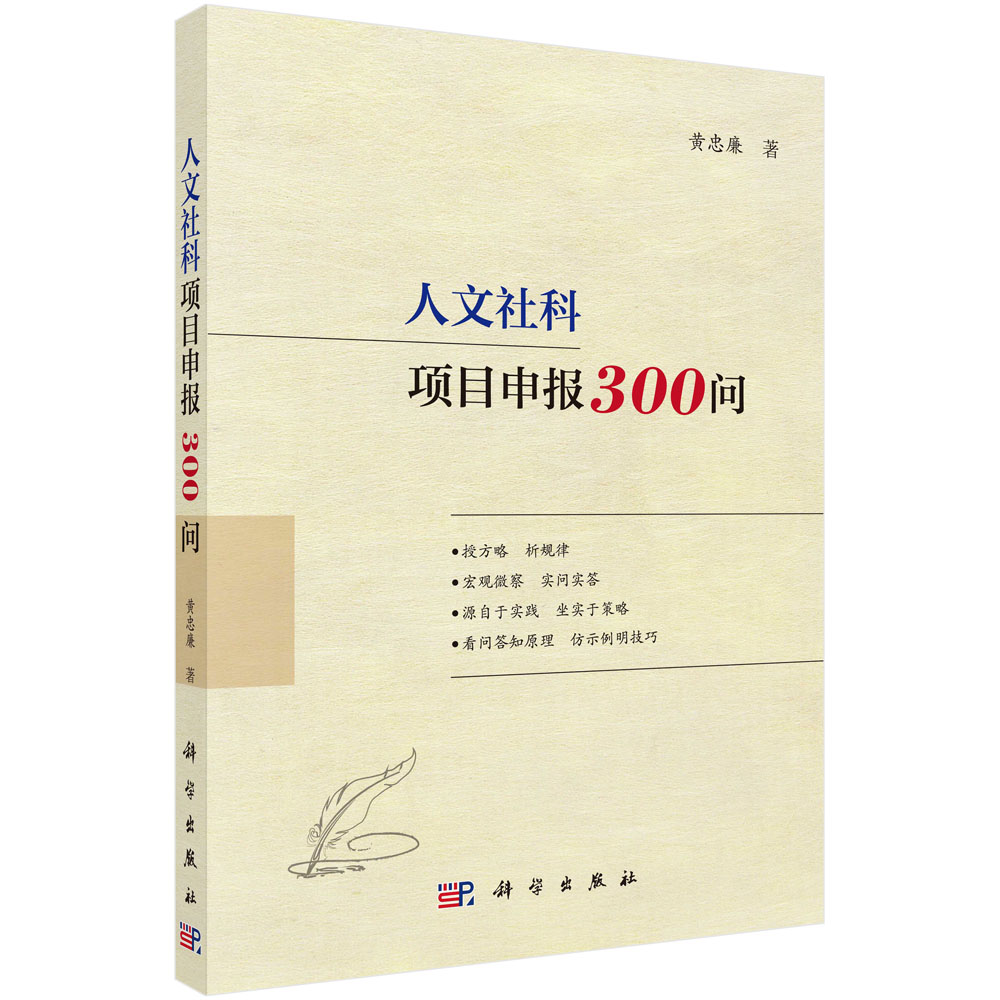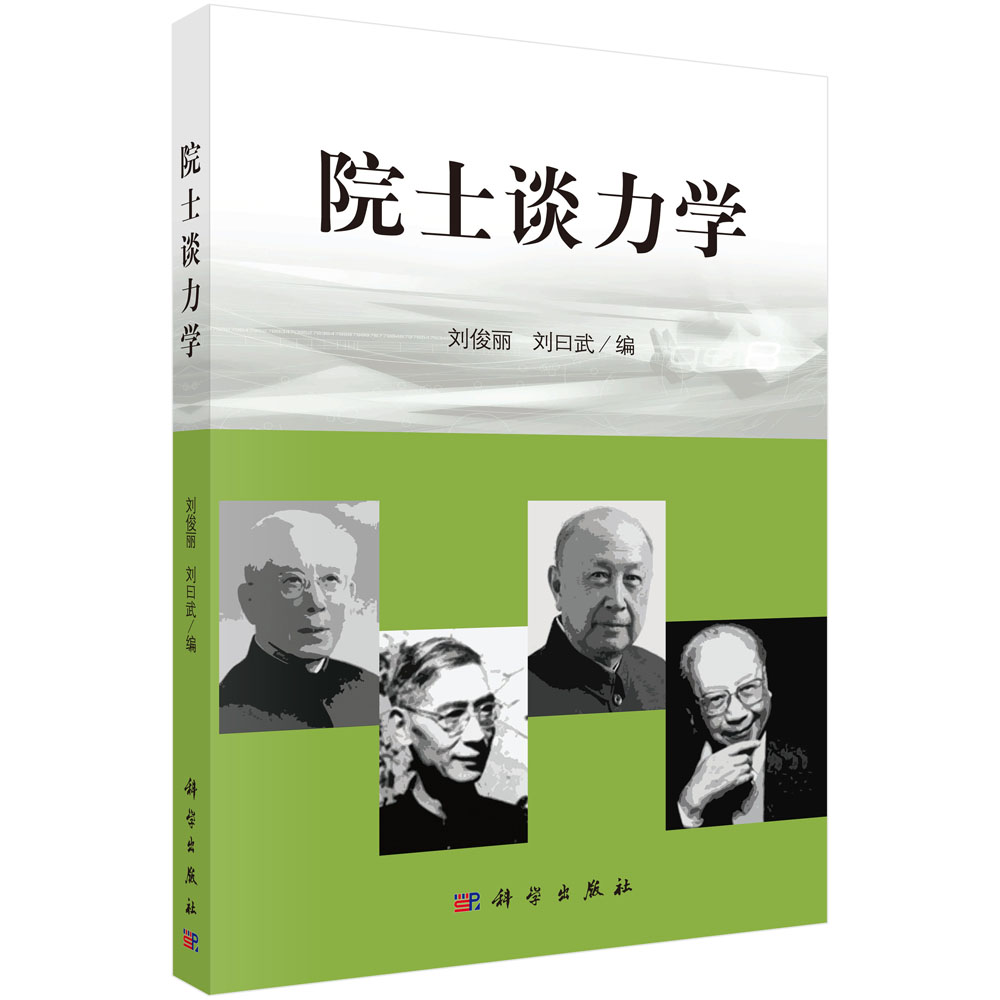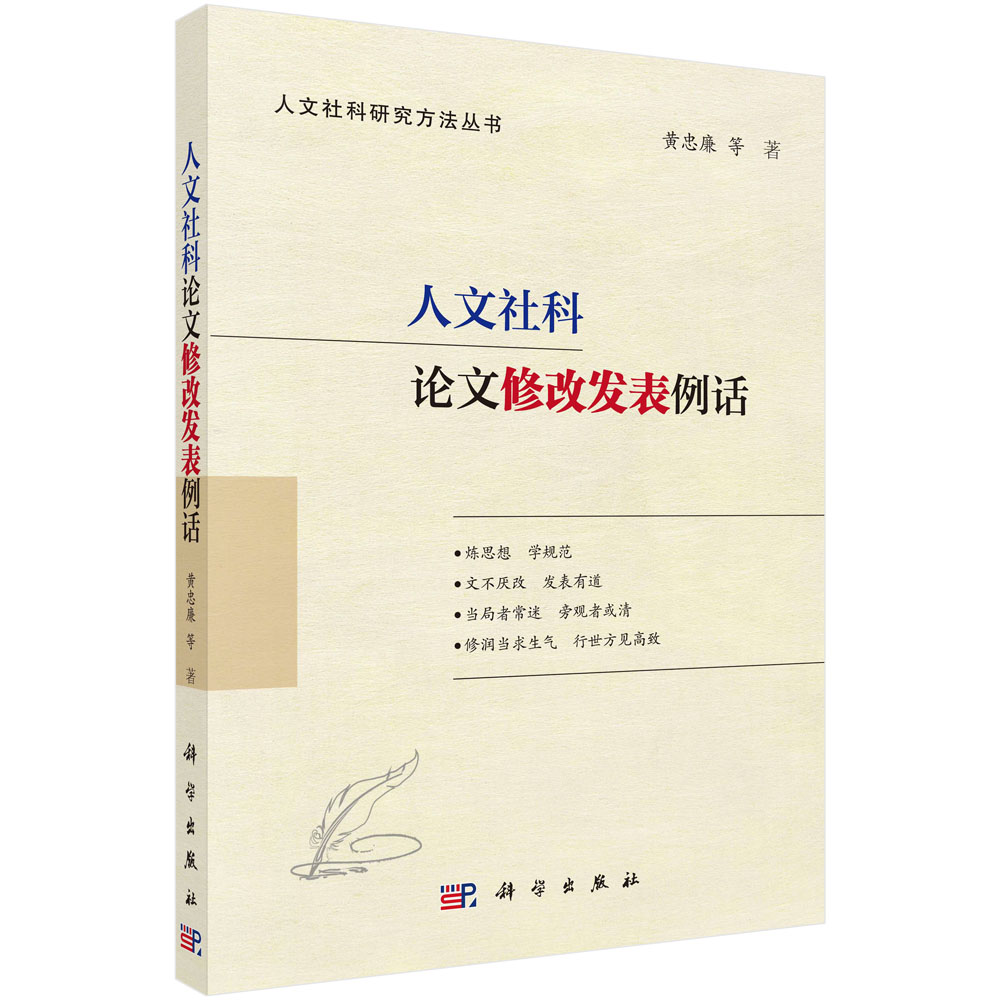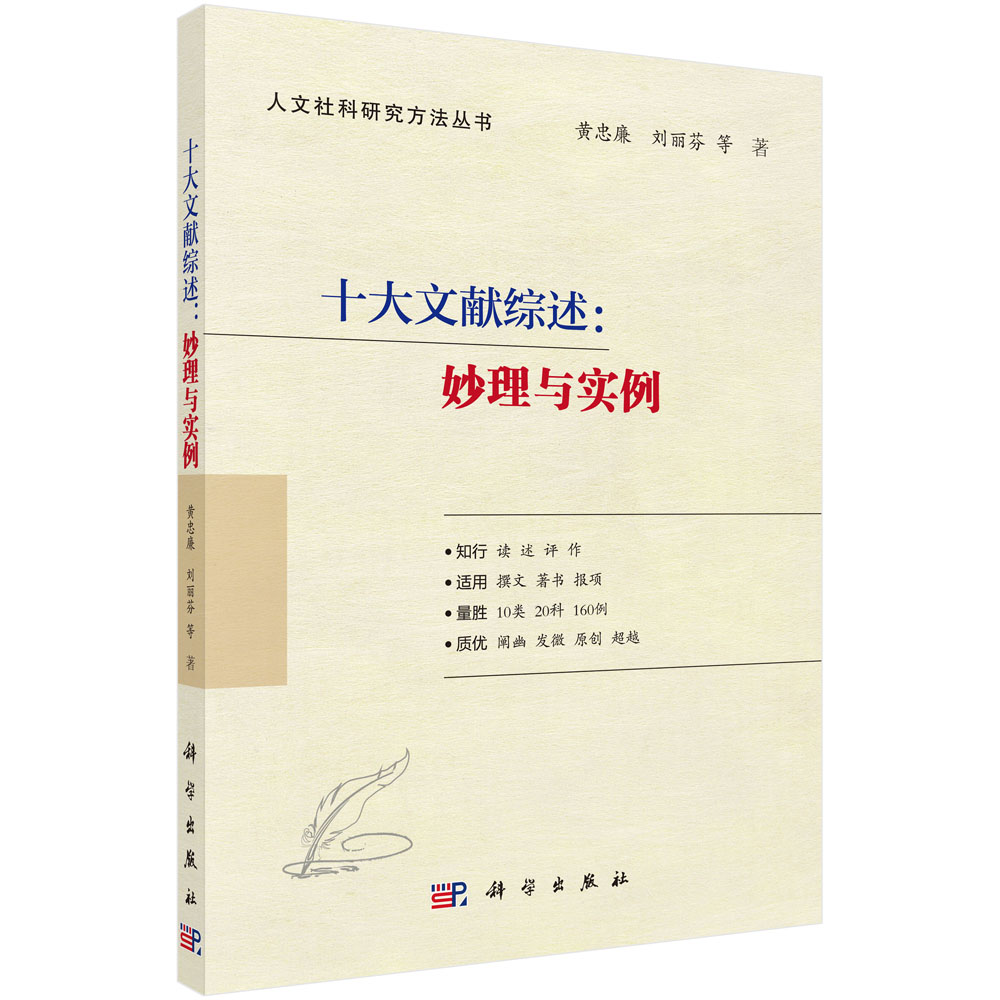“第4版新增了20%实验数据,增添了19F和31PNMR两个章节,以及一些重要的Raman光谱。本书以独特的表示方式-通过文字、表格、图表、图形-将核心的参考数据以简洁的编汇形式予以呈现,通过实践指导诠释了包括NMR,IR,UV/Vis和质谱数据以及相对应各自的化合物的结构特征。除了光谱使用的常规溶剂,还包含了标准试剂、MALDI和FABMS基质材料、质谱碎片峰的基本规律以及代表性化合物的UV/Vis光谱。本书不仅适用于学生课程学习和练习,而且高级学习者可借此书扩展阅读。同时具有初级光谱知识的技术人员可以使用此书,专业人士还可以使用书中的参考数据处理日常光谱信息解析。”
样章试读
目录
- 1 Introduction
1.1 Scope and Organization
1.2 Abbreviations and Symbols
2 Summary Tables
2.1 General Tables
2.1.1 Calculation of the Number of Double Bond Equivalents from the Molecular Formula
2.1.2 Properties of Selected Nuclei
2.2 ^13C NMR Spectroscopy
2.3 ^1H NMR Spectroscopy
2.4 IR Spectroscopy
2.5 Mass Spectrometrv
2.5.1 Average Masses of Naturally Occurring Elements with Masses and Representative Relative Abundances of Isotopes
2.5.2 Ranges of Natural Isotope Abundances of Selected Elements
2.5.3 Isotope Patterns of Naturally Occurring Elements
2.5.4 Calculation of Isotope Distributions
2.5.5 Isotopic Abundances of Various Combinations of Chlorine,Bromine,Sulfur,and Silicon
2.5.6 Isotope Pattems of Combinations of Cl and Br
2.5.7 Indicators of the Presence of Heteroatoms
2.5.8 Rules for Determining the Relative Molecular Weight(M_r)
2.5.9 Homologous Mass Series as Indications of Structural Type
2.5.10 Mass Correlation Table
2.5.11 References
2.6 UV/Vis Spectroscopy
3 Combination Tables
3.1 Alkanes,Cycloalkanes
3.2 Alkenes,Cycloalkenes
3.3 Alkynes
3.4 Aromatic Hydrocarbons
3.5 Heteroaromatic Compounds
3.6 Halogen Compounds
3.7 Oxygen Compounds
3.7.1 Alcohols and Phenols
3.7.2 Ethers
3.8 Nitrogen Compounds
3.8.1 Amines
3.8.2 Nitro Compounds
3.9 Thiols and Sulfides
3.10 Carbonyl Compounds
3.10.1 Aldehydes
3.10.2 Ketones
3.10.3 Carboxylic Acids
3.10.4 Estets and Lactones
3.10.5 Amides and Lactams
4 ^13C NMR Spectroscopy
4.1 Alkanes
4.1.1 Chemical Shifts
4.1.2 Coupling Constants
4.1.3 References
4.2 Alkenes
4.2.1 Chemical Shifts
4.2.2 Coupling Constants
4.2.3 References
4.3 Alkynes
4.3.1 Chemical Shifts
4.3.2 Coupling Constants
4.3.3 References
4.4 Alicyclics
4.4.1 Chemical Shifts
4.4.2 Coupling Constants
4.5 Aromatic Hydrocarbons
4.5.1 Chemical Shifts
4.5.2 Coupling Constants
4.5.3 References
4.6 Heteroaromatic Compounds
4.6.1 Chemical Shifts
4.6.2 Coupling Constants
4.7 Halogen Compounds
4.7.1 Fluoro Compounds
4.7.2 Chloro Compounds
4.7.3 Bromo Compounds
4.7.4 Iodo Compounds
4.7.5 References
4.8 Alcohols,Ethers,and Related Compounds
4.8.1 Alcohols
4.8.2 Ethers
4.9 Nitrogen Compounds
4.9.1 Amines
4.9.2 Nitro and Nitroso Compounds
4.9.3 Nitrosamines and Nitramines
4.9.4 Azo and Azoxy Compounds
4.9.5 Imines and Oximes
4.9.6 Hydrazones and Carbodiimides
4.9.7 Nitriles and Isonitriles
4.9.8 Isoyanates,Thiocyailates,and Isothiocyanates
4.10 Sulfur Compounds
4.10.1 Thiols
4.10.2 Sulfides
4.10.3 Disulfides and Sulfonium Salts
4.10.4 Sulfoxides and Sulfones
4.10.5 Sulfoni and Sulfinic Acids and Derivatives
4.10.6 Sulfurous and Sulfuric Acid Derivatives
4.10.7 Sulfur-Containing Carbonyl Derivatives
4.11 Carbonyl Compounds
4.11.1 Aldehydes
4.11.2 Ketones
4.11.3 Carboxylic Acids
4.11.4 Esters and Lactones
4.11.5 Amides and Lactams
4.11.6 Miscellaneous Carbonyl Derivatives
4.12 Miscellaneous Compounds
4.12.1 Compounds with Group IV Elements
4.12.2 Phosphorus Compounds
4.12.3 Miseellaneous Organometallic Compounds
4.13 Natural Products
4.13.1 Amino Acids
4.13.2 Carbohydrates
4.13.3 Nucleotides and Nucleosides
4.13.4 Steroids
4.14 Spectra of Solvents and Reference Compounds
4.14.1 ^13C NMR Spectra of Common Deuterated Solvents
4.14.2 ^13C NMR Spectra of Secondary Reference Compounds
4.14.3 ^13C NMR Spectrum of a Mixture Of Common Nondeuterated Solvents
5 ^1H NMR Spectroscopy
5.1 Alkanes
5.1.1 Chemical Shifts
5.1.2 Coupling Constants
5.2 Allkenes
5.2.1 Substituted Ethylenes
5.2.2 Conjugated Dienes
5.2.3 Allenes
5.3 Alkynes
5.4 Alicyclics
5.5 Aromatic Hydrocarbons
5.6 Heteroaromatic Compounds
5.6.1 Non-Condensed Heteroaromatic Rings
5.6.2 Condensed Heteroaromatic Rings
5.7 Halogen Compounds
5.7.1 Fluoro Compounds
5.7.2 Chloro Compounds
5.7.3 Bromo Compounds
5.7.4 Iodo Compounds
5.8 Alcohols,Ethers,and Related Compounds
5.8.1 Alcohols
5.8.2 Ethers
5.9 Nitrogen Compounds
5.9.1 Amines
5.9.2 Nitro and Nitroso Compounds
5.9.3 Nitrites and Nitrates
5.9.4 Nitrosamines,Azo and Azoxy Compounds
5.9.5 Imines,0ximes,Hydrazones,and Azines
5.9.6 Nitriles and Isonitriles
5.9.7 Cyanates,Isocyanates,Thiocyanates,and Isothiocyanates
5.10 Sulfur Compounds
5.10.1 Thiols
5.10.2 Sufides
5.10.3 Disulfides and Sulfonium Salts
5.10.4 Sulfoxides and Sulfones
5.10.5 Sulfonic,Sulfurous,and Sulfuric Acids and Derivatives
5.10.6 ThiOcarboxylate Derivatives
5.11 Carbonyl Compounds
5.11.1 Aldehydes
5.11.2 Ketones
5.11.3 Carboxylic Acids and Carboxylates
5.11.4 Esters and Lactones
5.11.5 Amides and Lactams
5.11.6 Miscellaneous Carbonyl Derivatives
5.12 Miscellaneous Compounds
5.12.1 Compounds with Group IV Elements
5.12.2 Phosphorus Compounds
5.12.3 Miscellaneous Compounds
5.12.4 References
5.13 Natural Products
5.13.1 Amino Acids
5.13.2 Carbohydrates
5.13.3 Nucleotides and Nucleosides
5.14 Spectra of Solvents and Reference Compounds
5.14.1 ^1H NMR Spectra of Common Deuterated Solvents
5.14.2 ^1H NMR Spectra of Secondary Refefence Compounds
5.14.3 ^1H NMR Spectrum of a Mixture of Common Nondeuterated Solvents
6 Heteronuclear NMR Spectroscopy
6.1 ^19F NMR Spectroscopy
6.1.1 ^19F Chemical Shifts of Perfluoroalkanes
6.1.2 Estimation of ^19F Chemical Shifts of Substituted Fluoroethylenes
6.1.3 Coupling Constants in Fluorinated Alkaries and Alkenes
6.1.4 ^19F Chemical Shifts of Allenes and Alkynes
6.1.5 ^19F Chemical Shifts and Coupling Constants of Fluorinated Alicyclics
6.1.6 ^19F Chemical Shifts and Coupling Constants of Aromatics and Heteroaromatics
6.1.7 ^19F Chemical Shifts of Alcohols and Ethers
6.1.8 19F Chemical Shifts of Fluorinated Amine,Imine,and Hydroxylamine Derivatives
6.1.9 ^19F Chemical Shifts of Sulfur Compounds
6.1.10 ^19F Chemical Shifts of Carbonyl and Thiocarbonyl Compounds
6.1.11 ^19F Chemical Shifts of Florinated Boron,Phosphorus,and Silicon Compounds
6.1.12 ^19F Chemical Shifts of Natural Product Analogues
6.1.13 References
6.2 ^31P NMR Spectroscopy
6.2.1 ^31P Chemical Shifts of Tricoordinated Phosphorus,PR^1R^2R^3
6.2.2 ^31P Chemical Shifts of Tetracoordinated Phosphoniam Compounds
6.2.3 ^31P Chemical Shifts of Compounds with a P=C or P=N Bond
6.2.4 ^31P Chemical Shifts of Tetracoordinated P(=O)and P(=S) Compounds
6.2.5 ^31P Chemical Shifts of Penta-and Hexacoordinated Phosphorus Compounds
6.2.6 ^31P Chemical Shifts of Natural Phosphorus Comoounds
7 IR Spectroscopy
7.1 Alkanes
7.2 Alkenes
7.2.1 Monoenes
7.2.2 Allenes
7.3 Alkynes
7.4 Alicyclics
7.5 Aromatic Hydrocarbons
7.6 Heteroaromatic Compounds
7.7 Halogen Compounds
7.7.1 Fluoro Compounds
7.7.2 Chloro Compounds
7.7.3 Bromo Compounds
7.7.4 Iodo Compounds
7.8 Alcohols,Ethers,and Related Compounds
7.8.1 Alcohols and Phenols
7.8.2 Ethers,Acetals,and Ketals
7.8.3 Epoxides
7.8.4 Peroxides and Hydroperoxides
7.9 Nitrogen Compounds
7.9.1 Amines and Related Compounds
7.9.2 Nitro and Nitroso Compounds
7.9.3 Imines and Oximes
7.9.4 Azo,Azoxv,and Azothio Compounds
7.9.5 Nitriles and Isonitriles
7.9.6 Diazo Compounds
7.9.7 Cyanates and Isocyanates
7.9.8 Thiocyanates and Isomiocyanates
7.10 Sulfur Compounds
7.10.1 Thiols and Sulfides
7.10.2 Sulfoxides and Sulfones
7.10.3 Thiocarbonyl Derivatives
7.10.4 Thiocarbonic Acid Derivatives
7.11 Carbonyl Compounds
7.11.1 Aldehydes
7.11.2 Ketones
7.11.3 Carboxylic Acids
7.11.4 Esters and Lactones
7.11.5 Amides and Lactams
7.11.6 Acid Anhydrides
7.11.7 Acid Halides
7.11.8 Carbonic Acid Derivatives
7.12 Miscellaneous Compounds
7.12.1 Silicon Compounds
7.12.2 Phosphorus Compounds
7.12.3 Boron Compounds
7.13 Amino Acids
7.14 Solvents,Suspension Media,and Interferences
7.14.1 Infrared Spectra of Cominon Solvents
7.14.2 Infrared Spectra of Suspension Media
7.14.3 Interferences in Infrared Spectra
8 Mass Spectrometry
8.1 Alkanes
8.2 Alkenes
8.3 Alkynes
8.4 Alicyclics
8.5 Aromatic Hydrocarbons
8.6 Heteroaromatic Compounds
8.7 Halogen Compounds
8.8 Alcohols,Ethers,and Related Compounds
8.8.1 Alcohols and Phenols
8.8.2 Hydroperoxides
8.8.3 Ethers
8.8.4 Aliphatic Epoxides
8.8.5 Aliphatic Peroxides
8.8.6 References
8.9 Nitrogen Compounds
8.9.1 Amines
8.9.2 Nitro Compounds
8.9.3 Diazo Compounds and Azobenzenes
8.9.4 Azides
8.9.5 Nitriles and Isonitriles
8.9.6 Cyanates,Isocyanates,Thiocyanates,and Isothiocyanates
8.9.7 References
8.10 Sulfur Compounds
8.10.1 Thiols
8.10.2 Sulfides and Disulfides
8.10.3 Sulfoxides and Sulfones
8.10.4 Sulfonic Acids and Their Esters and Amides
8.10.5 Thiocarboxylic Acid Esters
8.10.6 References
8.11 Carbonyl Compounds
8.11.1 Aldehydes
8.11.2 Ketones
8.11.3 Carboxylic Acids
8.11.4 Carboxylic Acid Anhydrides
8.11.5 Estets and Lactones
8.11.6 Amides and Lactams
8.11.7 Imides
8.11.8 References
8.12 Miscellaneous Compounds
8.12.1 Trialkylsilyl Ethers
8.12.2 Phosphorus Compounds
8.12.3 References
8.13 Mass Spectra of Common Solvents and Matrix Compounds
8.13.1 Electron Impact Ionization Mass Spectra of Common Solvents
8.13.2 Spectra of Common FAB MS Matrix and Calibration Compounds
8.13.3 Spectra of Common MALDI MS Matrix Compounds
8.13.4 References
9 UV/VIs Spectroscopy
9.1 Correlation between Wavelength of Absorbed Radiation and Observed Color
9.2 Simple Chromophores
9.3 Conjugated Alkenes
9.3.1 Dienes and Polyenes
9.3.2 α,β-Unsaturated Carbonyl Compounds
9.4 Aromatic Hydrocarbons
9.4.1 Monosubstituted Benzenes
9.4.2 Polysubstituted Benzenes
9.4.3 Aromatic Carbonyl Compounds
9.5 Reference Spectra
9.5.1 Alkenes and Alkynes
9.5.2 Aromatic Compounds
9.5.3 Heteroaromatic Comoounds
9.5.4 Miscellaneous Comoounds
9.5.5 Nucleotides
9.6 Common Solvents
Subject lndex



















